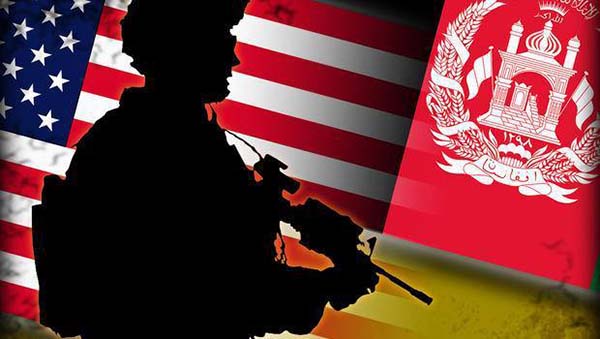With the standoff between Kabul and Washington over the Bilateral Security Agreement unresolved, the United States is deliberating on other options for having the BSA signed without exacerbating confrontation with President Hamid Karzai and going to the unfavorable ‘zero-option’ for US presence in Afghanistan through 2024. American officials have suggested that the Obama administration is prepared to slide the 31 December deadline for the Afghan government to sign the BSA to some weeks later. In Afghanistan, President Hamid Karzai is persisting on his refusal to sign the bilateral agreement in near future, insisting that the US should fulfill all demands he raised after the Loya Jirga endorsed the deal last month in Kabul.
Given the interests existing in Kabul and Washington to avert a failure in concluding a deal, the shift in Washington’s stance seems to be a cautious move to give more time and flexibility for signing of the security agreement, and avoid further confrontation with President Hamid Karzai to sign it. In addition to reports leaked about Obama’s intention to extend the stated deadline, US Secretary of State John Kerry recently said that the bilateral security agreement could be signed by Afghanistan’s next president if Karzai continues his refusal to sign it. This means that the United States is not willing to go to a ‘zero-option’ and is planning to have a security deal with Afghanistan in place later or sooner for keeping its forces in post-2014 Afghanistan.
The latest flexibilities shown by US officials over timing of the BSA signing suggest that despite growing exhaustion and apathy among Americans to the war in Afghanistan, there has been a growing interest in the White House to secure a deal with Kabul after the Jirga overwhelmingly supported a prolonged US presence in the country and asked President Karzai to sign the deal before the end of the year. The unprecedented support shown by Afghan elders at the jirga, as the ultimate decision-making body on national issues, and the recent public call on Karzai for signing the agreement must have come surprising to Americans, as they surely did not expect such overwhelming support from Afghan representatives and elders as well as the public.
It was exactly after these outpouring waves of support for the BSA that the US hinted shifting position in favor of staying in Afghanistan despite President Karzai’s renewed defiance. For now, the United States seems to be easing its pronounced timeframe and is no more in an alarming hurry to have the security agreement signed until the end of this year, as it had demanded earlier. Also assurance given by Afghan officials has helped the tensions to ease. During US Secretary of Defense Chuck Hagel visit to Afghanistan, Afghanistan Defense Minister Bismillah Khan Mohammadi, assured him that the security agreement would be signed. Also in his latest comments on the BSA, President Karzai has also said that, despite everything, he deems the security agreement necessary for long-term stability of the country.
On the other front, Afghanistan and NATO has started negotiations on a Status of Forces’ Agreement that would define a role for NATO forces in Afghanistan through 2024. NATO Chief Anders Fogh Rasmussen has said that the agreement would not be finalized or signed before Afghanistan and the United States reaches a security deal. The coincidence of commence of negotiations between Afghanistan and NATO with the continued standoff between Afghanistan and the United States over the signing of the Bilateral Security Agreement is not something completely irrelevant. NATO officials have time and again stressed that it would only consider a post-2014 plan for staying in Afghanistan only if the US keeps its residual force in the country. Therefore, the US and NATO deliberations for maintaining military presence in Afghanistan for another decade go neck to neck. And it can be concluded that NATO has began negotiations with Kabul assuming that the US will manage to strike a deal with the Afghan government.
The start of negotiations with NATO is a positive sign that Afghanistan and the West are moving forward and making progress on reaching a security deal despite the recent setbacks in Kabul and Washington relations. However, NATO’s conditions for committing military presence in Afghanistan after its mission ends by next year are still in place: that an agreement with the United States should be finalized first. Given the evidences from Washington, it is becoming clearer that the Bilateral Security Agreement between Kabul and Washington would be signed, in a later date if not soon. Being assured for this, NATO officials have began negotiations with the Afghan government over status of their forces after next year.
Despite the uproar going on over the signing of the security agreement with the United States, there is now a high possibility that the two countries would soon agree on signing of the agreement. President Karzai said recently that the US has agreed to all his demands except the most important one, to immediately start peace talks with the Taliban and guarantee peace in Afghanistan. With the negotiations between the two sides going on, as Karzai said, it is now highly unlikely for Kabul and Washington to break the deal in the last minutes.
Both the start of negotiations between NATO and the Afghan government and extension of US deadline for having the BSA signed are pr0omising news. They are signs of progress in negotiations on having residual forces of NATO and the US and resolving the ongoing standoff between Kabul and Washington. Given the instability in market, security and political situations in the country, the government must act quickly to undo the harms done so far due to the delay in signing the bilateral security agreement with the United States and proceed with concluding status of US and NATO forces after their mission ends by next year. This is critical for the two ongoing processes of security and political transitions in the country.

